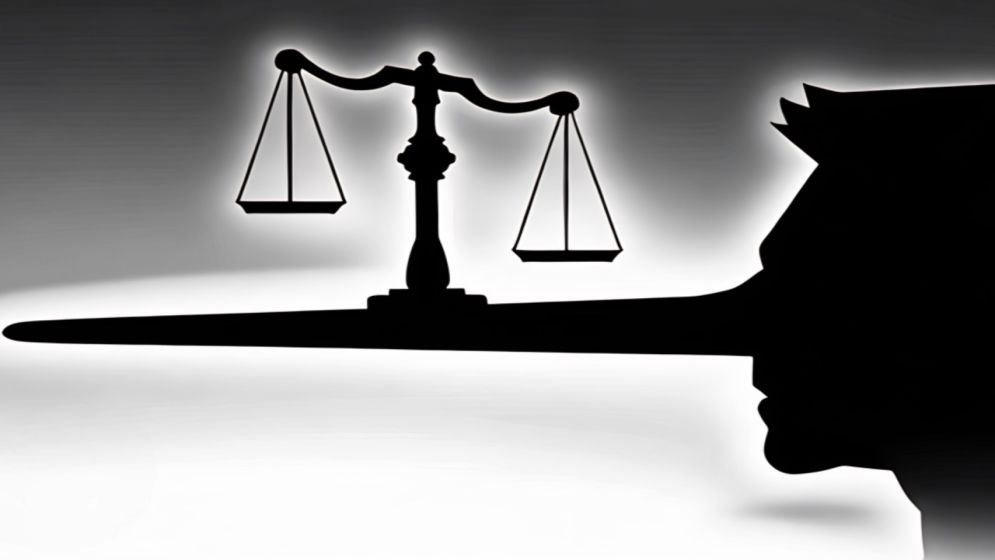Who really benefits from all these fake cases and forced arrests?

In any democracy worthy of its name, the legal system serves as a pillar of justice–a mechanism to ensure accountability, uphold the rule of law, and protect the rights of citizens irrespective of political leaning or social standing.
But when that very system is manipulated to persecute dissent, democracy does more than stumble. It begins to bleed.
The recent events in Rangpur, Bangladesh, illustrate this erosion with chilling clarity. On June 3, a murder case was filed at Hazirhat Police Station implicating one Chhames Uddin, a grocery shop owner from Radhakrishnapur.
There’s just one problem: Chhames Uddin has been dead for nearly a year. He died of a heart attack last August while being chased by police during the height of the anti-government demonstrations.
No mystery. No foul play. And yet, a year later, his name has been retrofitted into a murder case, his death now bizarrely recast as a political assassination.
That fiction alone would be troubling. But what followed is even more disturbing: Mahamudul Haque, an assistant professor of journalism at Begum Rokeya University and a known supporter of the 2023 protests, was arrested in connection with this imaginary crime.
Whatever one’s opinion of the protest movement, turning back the legal clock to entrap participants in fabricated criminal charges reeks of vengeance, not justice.
The case becomes almost surreal when one hears from the supposed complainant–Chhames Uddin’s widow, Amena Begum. In an interview, she claimed that not only did she have no desire to file a case, she was summoned by police and coerced into signing blank documents.
Her signature, she said, was obtained under false pretenses.This is state-enabled coercion–plain and simple– and it demands accountability.
Unfortunately, this is no isolated aberration. In an earlier column published on April 30, we reported on a similarly outlandish legal filing: a murder case lodged in a Dhaka court accused 408 people–ranging from local activists to national figures like former Prime Minister Sheikh Hasina and actor Iresh Zaker–of crimes tied to the same protest movement.
Once again, the plaintiff stated he was unaware of the case bearing his name.

A problematic pattern
The pattern here is unmistakable. The law is not being applied–it’s being deployed.
And its target is political opposition. Such misuse of state institutions doesn’t just undermine public faith in the judiciary. It signals a dangerous slide toward authoritarianism, where legality becomes merely the illusion of legitimacy.
Investigative reporting by major Bangladeshi news outlets–including Prothom Alo and Samakal–points to a deeply unsettling trend. A review published by Prothom Alo on April 27 examined 40 cases linked to the July 2023 protests.
Of those, more than half involved disputes over money, business rivalries, or personal grudges–not political subversion. The rest were tied to local factionalism. What unified them was a calculated exploitation of the legal system to target adversaries under the guise of public order.
And yet, despite such findings being a matter of public record, there is little sign that the state apparatus is either alarmed or inclined to course-correct. In fact, its silence increasingly resembles complicity.
On October 14 of last year, the Home Ministry issued a directive urging law enforcement to exercise restraint when filing politically sensitive cases. This was followed by the Inspector General of Police in April, pledging that arrests would be based on credible investigations, not conjecture.
These assurances were commendable–on paper. But in practice, they have had little to no bearing on the actions of local police or the judiciary. In Rangpur, as in Dhaka and elsewhere, we continue to witness a dispiritingly familiar playbook: arrest first, investigate later.
False charges go unchecked. Those who fabricate evidence face no consequences. And the burden of proof falls squarely on the innocent–forced to navigate a system designed to wear them down.
The cumulative effect is corrosive. When the legal system is used not to resolve disputes but to manufacture them, democracy becomes theater–and justice, a script rewritten by those in power.
In defense of the indefensible, some government representatives and legal advisors fall back on a familiar refrain: “Anyone has the right to file a case.”
Technically, yes. But that logic quickly collapses under scrutiny. What about the right not to be falsely accused? What about due process, or the constitutional promise of protection from arbitrary detention?
A legal right, when exercised in bad faith, ceases to be a right. It becomes a weapon–and a betrayal of the very principles the law is meant to uphold.

Same old judiciary?
The continued politicization of the judiciary doesn’t just trample individual rights; it corrodes the foundations of democratic governance.
When people as unassuming as a university professor or the widow of a grocery shopkeeper are pulled into fabricated cases, it sends a clear and chilling signal: speak out, and the system may come for you. Not because you are guilty, but because you dared to dissent.
What happens next matters. Not just for Rangpur. Not just for the accused. But for the integrity of the state itself.
First, the incident in Rangpur must be investigated with urgency and transparency. Those responsible for filing the fraudulent case–especially officials at Hazirhat Police Station who coerced Amena Begum–must face consequences.
This cannot be dismissed as a clerical lapse or administrative oversight. It is a violation of trust and law.
Second, a full audit of politically charged cases filed since August last year is essential. An independent judicial commission–with real authority to recommend dismissals and pursue charges against those engaged in malicious prosecution–must be established.
Without such a mechanism, accountability will remain a slogan, not a standard.
Third, law enforcement officials implicated in filing or facilitating these cases should be suspended pending investigation. The credibility of the police cannot be rebuilt if internal accountability continues to yield to political loyalty.
Finally, the interim government–which assumed power promising a return to lawful governance and restored civil liberties–must act decisively. Turning a blind eye to the misuse of the legal system undermines its legitimacy. Worse, it sets a precedent future governments may find too convenient to resist.
Justice is not only about punishing the guilty. It is about protecting the innocent. When the machinery of justice begins to serve partisan ends, no citizen–no matter how apolitical, how peaceful–is beyond its reach.
—
Siam Sarower Jamil is a PhD Research Scholar in Political Science at University of Delhi. He can be reached at [email protected]

